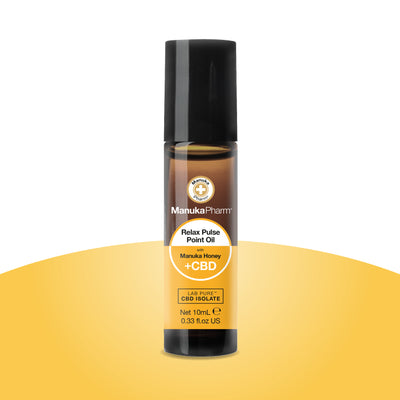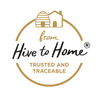Anxiety can present itself in many different ways. If you feel anxious, understanding what type of anxiety you are experiencing can help you locate some brilliant tools to ease and address it. There can be such a feeling of relief in seeing some of your symptoms written out, especially if you have questioned your sanity, or felt confused about why your mind and body react the way they do sometimes. I’m going to talk through six different types of anxiety, along with a tip or two to help.
What is anxiety?
Now, imagine a car alarm. It is designed to go off when the security of the car is threatened in any way. The alarm is a response to threat in the hopes that someone will act. Now, imagine that the car alarm goes off every time someone walks past it, a leaf lands on it, or a breeze brushes it gently. The alarm would be sounding even when it didn’t actually need to be!
Anxiety is like the car alarm. There to keep you safe at times of threat, helping your body respond quickly when needed so that you can fight or flee quickly. But, for different reasons, that anxiety response (alarm) can begin to be triggered even when you’re not actually at threat. We all have feelings of worry or anxiety sometimes, but when those feelings start taking over too much headspace, or impacting the decisions you make, or the joy you feel, you are deserving of addressing it.
Anxiety is the driver for the different feelings and behaviours we may experience. Ultimately our fear response is triggered, and our brain and body lurch into self-protective mode. Here are some ways that anxiety might present. Now, this list certainly isn’t exhaustive but these are the main kinds of anxiety I see in my consulting room.
Generalised anxiety
Generalised anxiety might find you feeling a heightened sense of worry and anxiety even though you find it hard to pinpoint a particular reason or cause. It’s like you spent lots of your day in a state of fear, feeling restless and irritable as a result. Sleep can feel hard to come by, and perhaps your mind seems intent on focusing on bad things that could happen. It can be scary, draining and joy-sapping.
Tip: Avoid caffeine and other stimulants that can set your body on edge, which exacerbates the feeling of anxiety. Engage in activities that slow your body and mind if they feel appropriate. You might enjoy a guided meditation, stretching, deep breathing or yoga. All these activities activate your body’s feeling of safety.
Phobias
A phobia is a life-affecting fear of a certain trigger. Being exposed to the trigger in any way can provoke mental and physical feelings of anxiety and panic. Your heart rate may rocket, you might shake, feel sick and dizzy, or find it hard to catch your breath. Phobias can be successfully treated, gently breaking the link between the trigger and the overwhelming anxiety response.
Tip: Invite a friend or someone you trust, to talk you through the feelings that arise next time you feel triggered. Perhaps they might help you face that trigger a little longer than you have done before, which helps re-write the narrative of fear. Explore online support groups that might provide some comfort, hope and specific tips.
Obsessive Compulsive Disorder (OCD)
OCD is characterised by experiencing repetitive and obsessive thoughts that can feel hard to control. These thoughts often lead to behaviours that you feel strongly compelled to do with the aim of trying to reduce the anxiety or obsessive thought. The obsessions and compulsions can look different for everyone, but some common ones may be checking switches in order to halt fear of fire, or repeating a specific phrase in the hopes it might keep loved ones safe. OCD can impact your daily life and wellbeing, and I want to reassure you that with the right support and interventions, symptoms can be soften and relieved.
Tip: Celebrate your victories. When seeking freedom from OCD remember that it’s a journey, and that growth is not a linear upward trajectory. Go gently on yourself and embrace the little and big wins along the way as you address your compulsions. Allow yourself to feel a sense of pride for being on this journey.
Post-traumatic stress disorder (PTSD)
Trauma occurs when you feel like your safety is at threat. This might be physical, mental or emotional safety. It might be that you experienced a single distressing event, or maybe you were exposed to something over time and felt traumatic. When the distressing feelings continue for longer than a month and impact day to day life, this is often termed PTSD. PTSD symptoms vary from person to person, but can manifest in feelings of panic, anger, sadness or disassociation. You may experience nightmares, panic, anxiety, insomnia, or distressing thoughts. There are a number of wonderful approaches to support people experiencing PTSD, and bring relief from the distressing symptoms in time.
Tip: If you are, or wonder if you are experiencing PTSD, the first port of call is to open up a dialogue with a medical profession, along with a trusted friend or family member so that they can support you as you seek the next step. A brilliant website to explore is Ptsduk.org which talks you through the different treatment options.
Social anxiety
Not to be confused with shyness or being introverted, social anxiety is anxiety triggered by being in social settings, or talking to others. It can make friendships feel tricky to form, and can take confidence on a rollercoaster ride dependent on how sufferers perceive each social interaction. You may feel anxious before and during being with others, and you may find that you ruminate over each word uttered afterwards. You might feel uncomfortable in your body and hypersensitive to what you and others are saying, and how they are responding to you, leaving you feeling utterly exhausted!
Tip: See social confidence as a muscle that benefits from being strengthened over time, slowly. Think about what might make that social interaction a little more comfortable for you, perhaps you limit the time you spend with others so that you don’t feel too overwhelmed, and increase it slowly as you build confidence. Maybe you take breaks to do some grounding breaths in a quiet place such as the toilets, to help breathe away the adrenaline you may feel.
Other types of anxiety:
Now, just because you may not identify a type of anxiety that resonates strongly with you in my short list, I want to remind you that anxiety takes many forms and matching symptoms up against a checklist can mean that you might not get the support you need and deserve.
How therapy can help
Now, as a therapist, I’m a huge advocate for talking therapies being the ideal way to address the anxiety that is hindering your headspace and your peace. I love working with clients who come to me with anxiety, and sit on my big, blue sofa. I love it because I have such confidence that we can ease those feelings drastically, leaving people with a renewed sense of control, an armoury of tools, and a fresh sense of hope. It may take some exploring to discover what might be fuelling the anxiety for you, so that the cause can be addressed. You can access therapy via your doctor or The Counselling Directory website. If there are waiting lists, you can ask to be pointed towards some resources or materials that may help in the meantime.
Along with the tips I’ve shared here, my biggest tip is to speak to start the conversation with a friend, doctor or therapist. Where there is help, there is huge hope too. And you deserve all the hope that you can reclaim your headspace and your joy from anxiety.




















